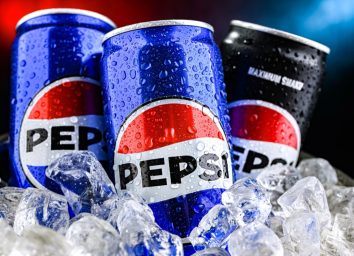6 Best Immune-Boosting Drinks to Fight Off Sickness

It's that time of year when many of us are thinking about what we can do to get through the fall and winter without catching the dreaded cold or flu. The first thought often turns to boosting our body's immune defenses, whether that's with healthy foods or immunity-boosting drinks.
The immune system is the body's natural defense network comprised of cells, tissues, and organs that help protect the body from bacteria, viruses, fungi, and other harmful substances. The immune system provides a barrier to prevent the invaders from entering our body, but also has an intricate system of cells to fight off the pathogens if they do find a way to enter the body.
A healthy overall lifestyle that ensures plenty of high-quality sleep is essential for strong immunity. Eating right and drinking beneficial beverages can also help bolster your body's immune system.
Read on to learn about some immune-boosting drinks you can enjoy to prepare your body for the winter season, and for more healthy eating tips, check out the 10 Best Foods to Boost Your Immunity.
Water

Since our bodies are around 60-70% water by weight, and every single bodily function requires water, drinking adequate amounts of H20 is a good place to start to keep your immune system functioning. When your body is dehydrated, it can promote the growth of bacteria and viruses. That's why it's so important to make sure you drink the optimal amount of water for your body's needs every single day.
A good rule of thumb for how much water is to drink half of your body weight in fluid ounces. If you weigh 150 pounds, your goal would be 75 ounces of water a day.
Some of the ways that water helps support the immune system is by aiding the absorption of nutrients and maintaining the mucous membranes in your nose, mouth, and throat that are often the first line of defense against a pathogen and a natural barrier to infections. Water is also an essential component of lymphatic fluid, which delivers white blood cells that help fight infections.
A study published in the journal Medical Hypotheses reported that individuals who were noted as being dehydrated prior to contracting COVID 19 were at increased risk of dying from COVID-19. The authors recommend that there should be public health recommendations to drink more water to help prevent and have better outcomes in fighting COVID-19.
Green tea
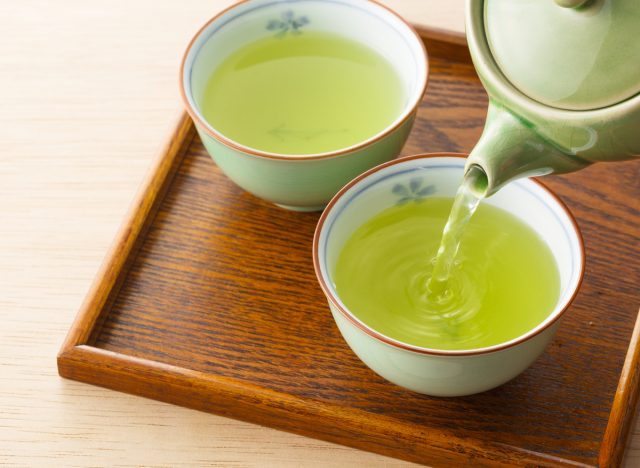
Green tea is another great beverage to enjoy to bolster your body's natural defenses. Green tea is rich in beneficial polyphenol flavonoids that provide myriad health benefits, from reducing the risk of heart disease and certain cancers to managing systemic inflammation.
According to a study published in the journal Molecules, green tea strengthens immunity through its antioxidants that help protect cells against oxidation and reactive oxygen species. Green tea is thought to protect against diseases and infections by its antioxidant capacity as well as many other proposed pathways. It is also calorie-free and has a long history of being enjoyed for its numerous health-promoting benefits.
Kefir
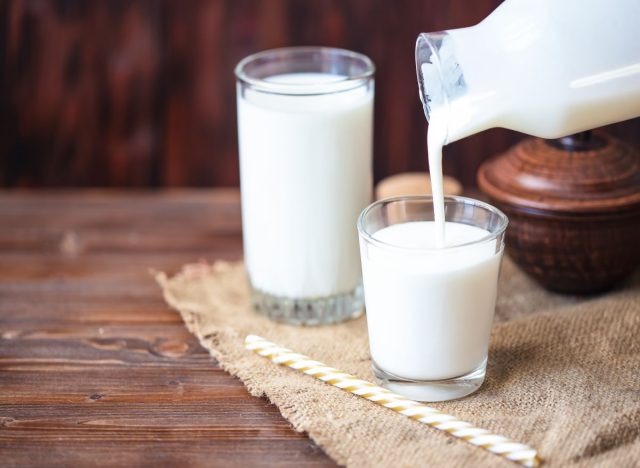
Kefir is a fermented, yogurt-like beverage made from different types of milk, such as cow, sheep, and goat. Like yogurt, kefir is rich in different beneficial probiotics that help keep your GI tract microbiota balanced. Kefir's main beneficial bacteria is Lactobacillus kefiri, while traditional yogurt's main probiotics are Lactobacillus bulgaricus and Streptococcus thermophilus.
A review article published in the journal Nutrients reported that kefir provides antioxidant, antimicrobial, anti-inflammatory, wound healing, and many other health benefits.
Lemon ginger tea
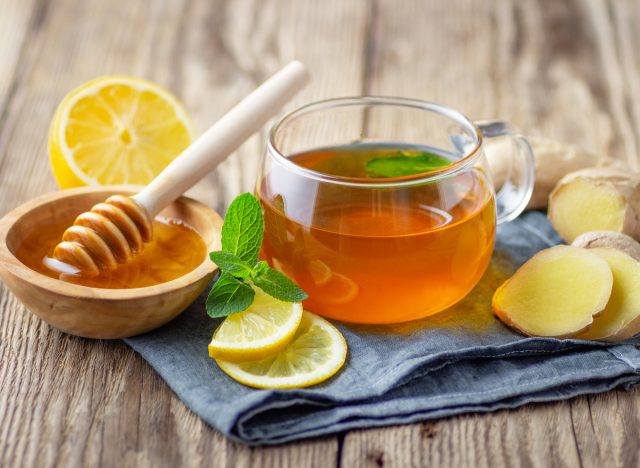
Whether you make your own or purchase a brand of lemon ginger tea at your supermarket, this herbal tea is a great choice to help keep your immunity up. The tea is made by combining freshly grated ginger and lemon juice in hot water. Nationally available brands are made with lemongrass, lemon peel, and natural ginger. Some even have added probiotics for more immune-boosting benefits.
Lemon ginger tea is rich in vitamin C, an antioxidant that is known to help protect cells against oxidative damage. Vitamin C also provides anti-inflammatory properties and helps turn down negative immune responses, according to research published in the journal Antioxidants.
Ginger also possesses more than 100 bioactive compounds that help fend off nausea, reduce risk for certain cancers, improve blood lipids, reduce inflammation and much more, according to research published in the journal Nutrients.
100% orange or grapefruit juice
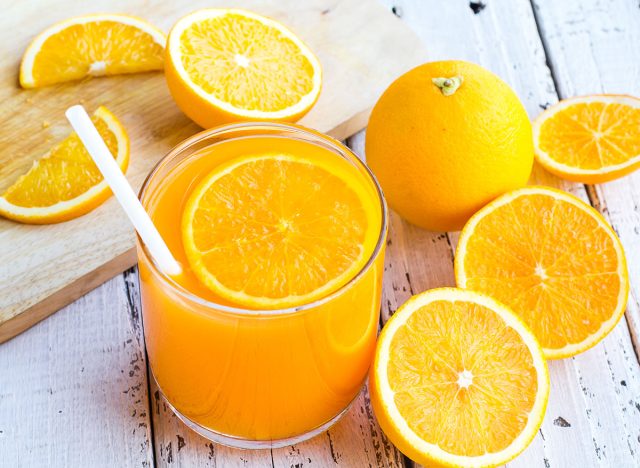
Orange juice is often promoted as a beverage of choice if you're trying to fight off a cold or flu virus, and there is significant scientific support to drink citrus juice for your immune system.
According to a study published in Frontiers in Immunology, the vitamin C and folate in citrus juices sustain the integrity of the immune barriers and protect many types of immune cells, including natural killer cells and T-cells. What's more, the bioactive compounds in citrus have anti-inflammatory effects to support immunity.
Both orange and grapefruit juice are nutrient-rich and provide more than 100% of the total vitamin C you need a day in one serving. These 100% fruit juices also provide vitamin A and folate. When buying orange juice, you can even find options that are fortified with vitamin D, a nutrient long known to be essential for healthy immunity.
Tomato juice
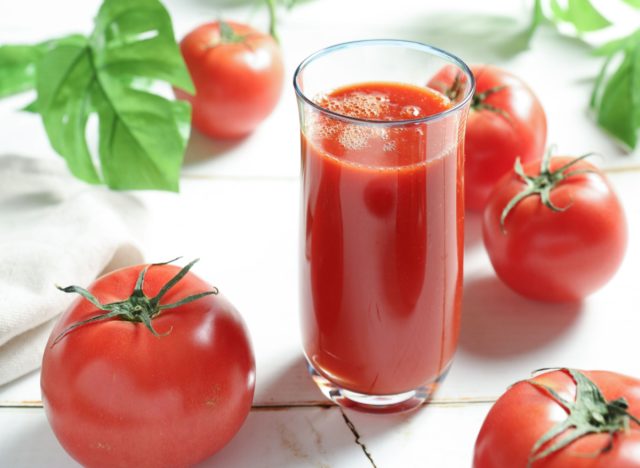
Like citrus fruit, tomatoes are rich in vitamin C as well as lycopene, a beneficial antioxidant carotenoid that possesses many health-promoting properties and is known to help tamp down systemic inflammation.
Tomato soup is often recommended when you have a cold or flu for it's vitamin C, but refreshing tomato juice will provide similar amounts of vitamin C. What's great about tomato juice is that eight ounces has just 50 calories, no added sugar, and nearly 100% of the vitamin C that you need in a day. To keep sodium levels in check, look for lower-sodium tomato juice.
- Source: https://www.ncbi.nlm.nih.gov/pmc/articles/PMC7467030/
- Source: https://www.ncbi.nlm.nih.gov/pmc/articles/PMC4843789/
- Source: https://www.ncbi.nlm.nih.gov/pmc/articles/PMC7059963/
- Source: https://www.ncbi.nlm.nih.gov/pmc/articles/PMC8234133/
- Source: https://www.ncbi.nlm.nih.gov/pmc/articles/PMC4626640/
- Source: https://www.ncbi.nlm.nih.gov/pmc/articles/PMC7071183/
- Source: https://www.ncbi.nlm.nih.gov/pmc/articles/PMC9598715/
- Source: https://www.ncbi.nlm.nih.gov/pmc/articles/PMC7019938/
- Source: https://www.ncbi.nlm.nih.gov/pmc/articles/PMC8264544/



